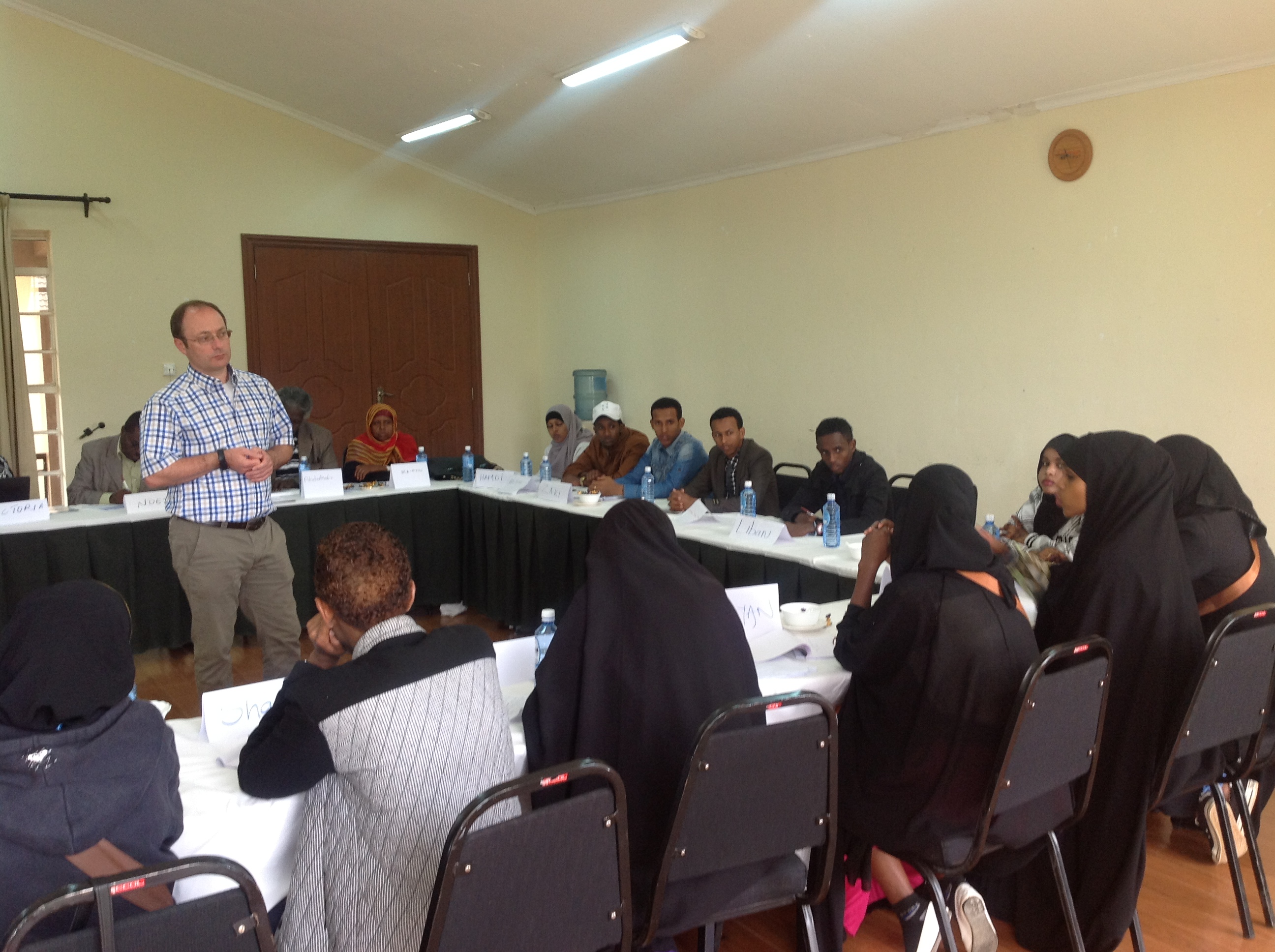The purpose of this project was to answer the challenge of integration of screening and core packages of mental health and substance use disorder services into routine primary health care through innovative e-learning technologies. eDATA K aimed to correct these problems by adapting NextGenU.org`s high-quality, globally-available, free-to-use, and low-cost to assemble, computer, peer-, and mentor-supported learning to build the capacity to provide substance use disorder screening and core services in primary care, as a first step toward building the capacity to address other mental health conditions. This particular project also included a course on quality improvement and leadership to help support practitioners in integrating those new services into their current clinical practice.
Project Results and Impacts:
On healthcare workers
- More than 400 health care workers involved withabout halfof them completing the course on their own time, a very large completion rate compared to < 1% average completion rate for Massive Open Online Courses (MOOCs).
- Significant reduction or stigmatizing attitudes among health care workers towards people with alcohol and other substance use disorders
- Widely reported acceptability and usefulness of the courses amongst health care workers
“It has helped me because in the beginning before I was trained I was not comfortable living with those people who use these substances like alcohol. But nowadays I can talk to them comfortably and make them understand their problem and how they can deal with it”
On patients
- 22,327 patients reached with screening for alcohol, tobacco and other substance use, BMI and physical activity during the study enrolment period – showing acceptability and feasibility
- 1,212 (5.5%) patients identified as having moderate to high risk levels of alcohol use
- Over half of them, i.e. 609 (50.2%), received brief intervention for risky alcohol use and the rest received feedback and written advice
- Follow-up assessments conducted at 1,3, and 6 months with a follow up rate of 83.2% at 6 months
- Significant reduction in alcohol use amongst those who received the screening and feedback as well as those who received the full brief intervention, demonstrated up to 6 months post intervention; with a larger decrease in alcohol consumption than in other brief intervention trials.
- Positive changes in self-reported quality of life domains in nearly half of the participants
- A 60% decrease in depression score between baseline and 6 months amongst all participants in the two groups
- An overall decrease in risk scores from consumption of substances based on the ASSIST from baseline to 6 months; in public facilities 74% for tobacco; 88% for alcohol; 34% for cannabis; and 47% for amphetamine-type substances (khat being the most prevalent of these substances in Kenya). In private facilities, 84% reported a decreased score for tobacco, 97% for alcohol; 45% for cannabis; and 65% for amphetamine-type substances.
- High acceptability of the intervention among beneficiaries
“Since I was married, I had never had a child with my husband that is why am saying it (alcohol) is very bad. We have stayed for long without me getting pregnant. I have been drinking a lot. After I joined this study, I stopped completely taking alcohol and I became pregnant immediately. This child I am holding here is as a result of this study.”
On the healthcare system
- 60 health workers completed the four modular online practice improvement course blended with the Institute of Health Care Improvement Open School courses
- The quality improvement and leadership course was effective in supporting the integration of screening and intervention in practice in public facilities, with 12,369 screens and 1,553 Brief Interventions done post randomized control trial, without any financial incentives for performing those interventions as part of research
- For the first time, the Makueni County Government allocated resources for mental health activities
- The Makueni County Government included substance use interventions in their performance appraisal process
- National Ministry of Health is ready to use the training and interventions to advocate for increased budgetary support for mental health and substance use intervention activities


